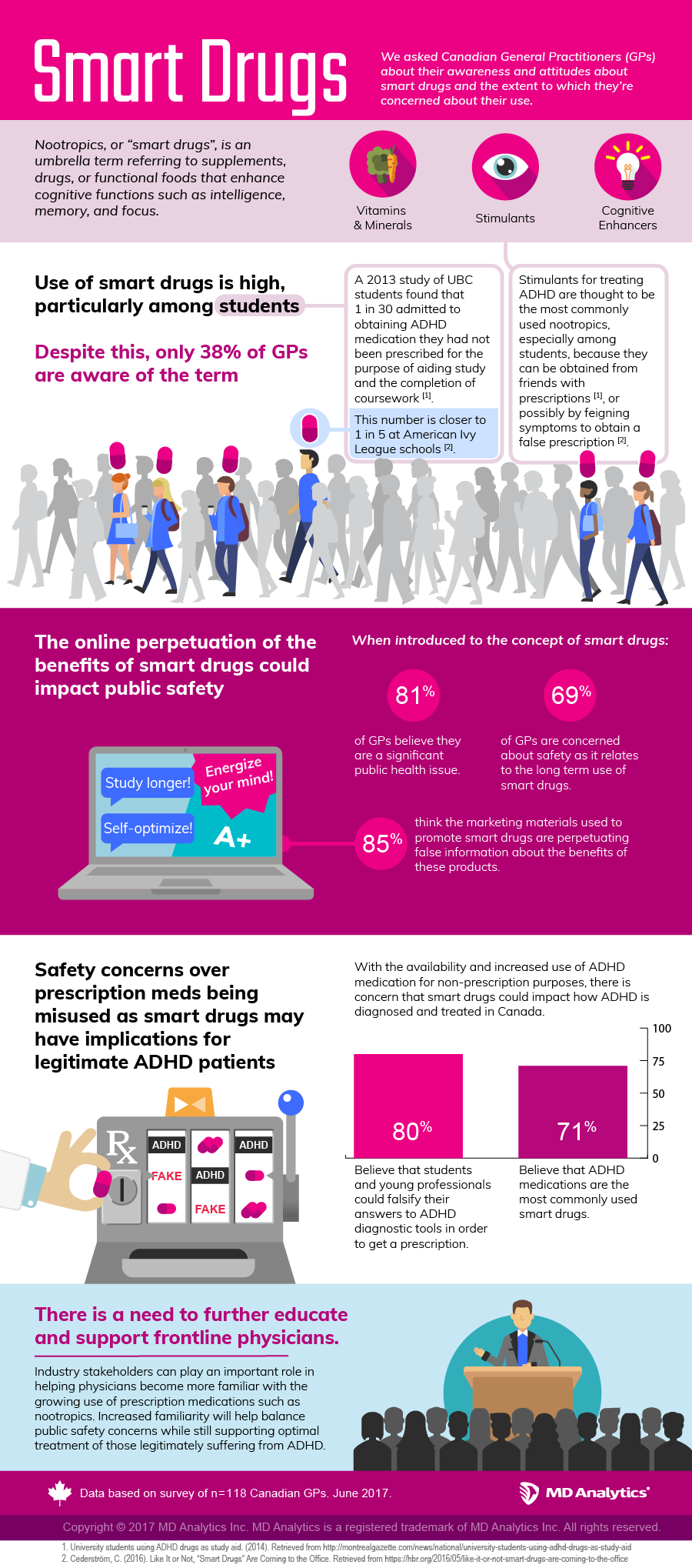Smart Drugs (or nootropics) are substances used to enhance cognitive functions. Exact usage numbers are difficult to ascertain, but a recent study conducted among UBC students found that 1 in 30 students admitted using ADHD medication they were not prescribed, for their cognitive effects.
The use of Smart Drugs appears to be gaining momentum in Canada, especially among students and young professionals in high pressure situations, thereby having the potential to turn into a public health issue.
Read More
Use of smart drugs is high particularly among students. A 2013 study of UBC students found that 1 in 3 admitted to obtaining ADHD medication they had not been prescribed, for the purpose of aiding study and the completion of coursework.
Stimulants for treating ADHD are thought to be the most commonly used nootropics, especially among students, because they can be obtained from friends with prescriptions, or possibly by feigning symptoms to obtain a false prescription.
When introduced to the concept of smart drugs, 85% of GPs believed that the marketing materials used to promote smart drugs are perpetuating false information about the benefits of these products; 81% believe they are a significant public health issue; 69% are concerned about safety as it relates to the long terms use of smart drugs. See our infographic for a more detailed look at the results from this study.
Past Survey Data
Patient-Powered Health: Embracing Technology Solutions
The Rise of Involved Healthcare Consumers
Patient-doctor relationships have historically been very hierarchical with doctors being the experts and patients heeding their advice. In more recent years, cultural...
What Digital Media do Physicians Use?
The importance being placed on digital media by pharma and med tech/device manufacturers has grown over the past few years as it has become apparent that relying on the...
Past Survey Data
Gen Pop experience with Vaccines
Patient-Powered Health: Embracing Technology Solutions
The Rise of Involved Healthcare Consumers
Patient-doctor relationships have historically been very hierarchical with doctors being the experts and patients heeding their advice. In more recent years, cultural...
What Digital Media do Physicians Use?
The importance being placed on digital media by pharma and med tech/device manufacturers has grown over the past few years as it has become apparent that relying on the...

